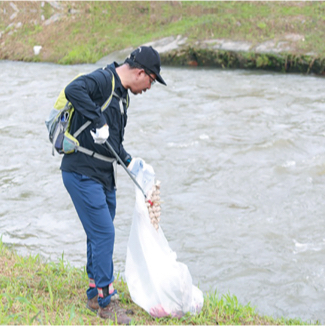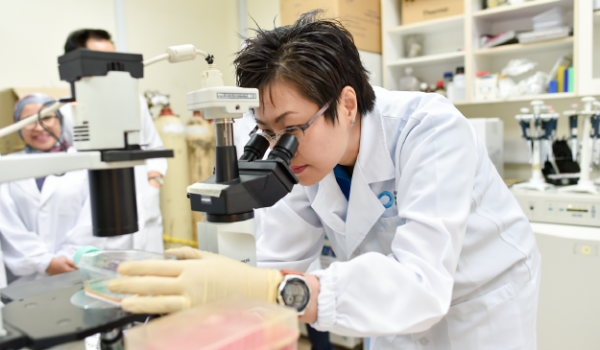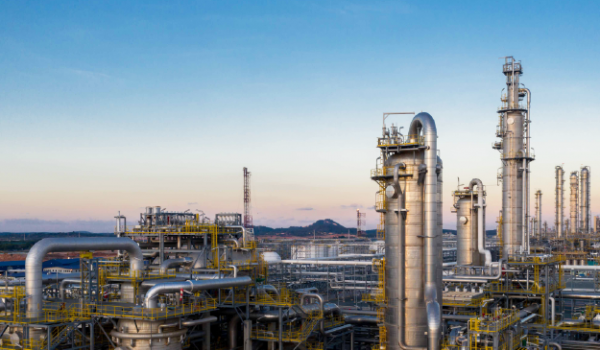That is the core of the New Plastics Economy (NPE) movement spearheaded by the Ellen MacArthur Foundation in 2016.
10/06/2020 • 5 mins read
New Plastics Economy
Walking the sustainable talk.
Sharmila Ganapathy and Chai Li Tiing

The NPE recognises the indelible and indispensable presence of plastics in the economy today and seeks to address plastic via concrete actions, concurrently harnessing the benefits of plastic and addressing its drawbacks.
Through the NPE, plastic will not become waste or pollution. It holds that a circular economy for plastics can be created through the elimination of unnecessary plastic items, innovation of plastic to make it reusable, recyclable or compostable, and circulating plastic items used to keep them out of the environment.
The Three Key Actions of the New Plastics Economy Vision:
New Plastics Economy Vision

Source: Ellen MacArthur Foundation
Thanks to technology, the New Plastic Economy is not a mere figment of imagination, but will be soon a reality.
As one of the Malaysian corporations leading the way, PETRONAS Chemicals Group Berhad (PCG) has prioritised addressing plastic waste and pollution issues with its own NPE initiative. PCG plays a critical role as one of the founding members of the Malaysia Plastic Pact (MPP) that drives the implementation of the Circular Economy Roadmap (CER) for Malaysia, initiated by the Ministry of Energy, Science, Technology, Environment and Climate Change (MESTECC), Malaysia in September 2019 to chart Malaysia's Circular Economy Roadmap.
It Is Not Plastic but How We Handle It
Plastic usage and waste have been the subject of debate for decades now. As one of the greatest innovations in human history, advocates laud the lightweight and durable material’s role in advancing industries, providing an alternative to steel in the automotive and tech industry and to glass in the food packaging industry, among countless others. Opponents highlight the irreversible damage non-biodegradable plastic has done to the marine ecosystem and point to the rising number of overcrowded landfills filled with plastic waste.
Former PCG Head of Manufacturing and Project Lead for PETRONAS’ NPE initiative, Mahadzir Rani has his own take on the matter. While noting that plastic has allowed for great advances in humanity in the last century, the improper handling of plastic waste has resulted in pollution with plastic waste leaching into the environment, threatening humans and the planet.


Mahadzir Rani
Former Project Lead of PCG NPE initiative
To Mahadzir, NPE is a “beautiful thing” which addresses the plastic problem in a holistic and pragmatic manner. It calls for organisations in the ecosystem to work together in driving the plastic value chain.
PCG, he says, is employing a holistic approach by focusing on four key areas in its journey under its own NPE umbrella. “The four areas are education, clean ups, infrastructure and innovation,” he explains, adding that some RM8 million has been invested in the initiative to date.
Changing the mindset of “plastic as waste” to “plastic as a resource” through the four pillars of PCG’s New Plastic Economy:

Education
To impart knowledge on how we can continue to benefit from the versatility of plastic without damaging the environment by adopting proper waste management practices.

Innovation
To apply advanced recycling technologies to convert plastic waste that cannot be recycled using conventional methods.

Clean-up
To turn education into action through hands-on clean-up activities within communities.

Infrastructure
To develop effective and sustainable waste recovery systems.
Through various initiatives under the key areas, PCG targets to recover 100 per cent of plastic waste equivalent to its production volume of polymers for the Malaysia market by 2030.
According to Mahadzir, some 10 per cent of 12 million metric tonnes plastic production volume comprises polymers, where 30 per cent of this volume is for the domestic market. “This amounts to some 360,000 metric tonnes that we want to recover and chemically recycle, channelling it into the circular economy.” Putting this into perspective, it will be equivalent to reducing the carbon emission of removing 216,000 cars from Malaysian roads.
Creating a Plastic Value Chain
Commenting on PCG’s efforts to step up innovation in order to tackle plastic waste and pollution in Malaysia, Mahadzir shares that PCG wants to build a facility of its own to do chemical recycling, as opposed to the current mechanical recycling process. Mechanical recycling results in plastic products that are not hygienic, he explains, adding that chemical recycling changes the chemical construction of plastic waste, allowing it to be converted into virgin-quality polymers.
“There’s no leakage along the line, so what you produce, you consume and with chemical recycling you are able to produce plastic again.”
To this end, PCG signed a memorandum of understanding (MoU) with global firm PLASTIC ENERGY Ltd (Plastic Energy) last June to construct a facility that produces crude naphtha from plastic waste as a feedstock to polymer production. Plastic Energy already has three commercial plants to its name, two currently operational in Spain and another still under construction in France.
The plant, which will be located in Johor, will be the first in Southeast Asia and is expected to reach Final Investment Decision (FID) stage by end of this year. Mahadzir explains, “The plant will employ a chemical recycling process using pyrolysis technology to produce crude naphtha from plastic waste.
The end product will be fed into our crackers in Kertih or Pengerang to produce ethylene, which will in turn be channelled into the polymer plant, thereby producing virgin plastic.”
Mahadzir envisions a future where the end product from a circular economy is certified and approved by an international body, International Sustainability for Carbon Certification (ISCC) in ensuring consumers of its legitimacy – akin to that of FSC-certified paper.

Yet another aspect not to be overlooked is educating the general public on plastic usage.
Plastic Awareness - Starting Them Young
Yet another aspect not to be overlooked is educating the general public on plastic usage.
Mahadzir reveals that PCG has worked hand-in-hand with the Ministry of Education, Solid Water Corporation (SWCorp) and the Malaysian Plastics Manufacturers Association (MPMA) to develop an educational module for primary and secondary school students on plastic waste management and the environment, encompassing interactive digital learning and electronic media. To date, the syllabus has been distributed to 10,102 national schools throughout Malaysia. In 2020, the programme will be further enhanced through recycling competitions in schools nationwide under Pertandingan Kitar Semula Peringkat Kebangsaan (PERKISS) in collaboration with the Ministry of Education and SWCorp.


“We will also be conducting training programmes to coach the teachers in ensuring that the materials are being properly relayed to the students and we have plans to subtly measure the progress through nationwide competitions to gauge the understanding among the next generation,” he adds.
To drive home the point in the eyes of the public, PCG launched an enhanced Be Green programme nationwide to educate stakeholders and communities through a series of talks and clean-up activities.
“We are trying to inculcate the proper practices of waste collection and segregation through the 3Rs (Reduce, Reuse and Recycle), while raising awareness on the preservation of rivers as a freshwater source.


We conducted clean-up activities, starting with Sungai Langat, being the most important source of water in Klang Valley. This is then followed by Sungai Balok in Kuantan, Sungai Kemena in Bintulu and Pantai Paka in Kertih,” Mahadzir explains.
Collaborations Are the Way Forward
PCG is also exploring collaboration opportunities with other organisations for waste-to-energy and waste-to-chemical initiatives. “For waste-to-energy we have signed an MoU with Cypark Resources Berhad (Cypark) in October last year to develop a Solid Waste Modular Advanced Recovery and Treatment (SMART) system for municipal waste in Malaysia.”
He further notes that Cypark has had experience in the area, having pioneered the nation’s first SMART plant in Port Dickson, which will soon be ready for commissioning.


This collaboration explores the establishment of a waste-to-energy plant and possibly the development of infrastructure to address the existing gaps in plastic waste recovery which paves the way for the realisation of the NPE vision in Malaysia. Another option PCG is considering is waste-to-chemical using gasification technology, which produces carbon monoxide and eventually methanol.
“There is a plant in Canada that has achieved commercial operations. We are already in talks with them while exploring possibilities of venturing into this segment,” Mahadzir shares.
On being a member of the Malaysian Plastics Pact in an effort to meet the United Nations Sustainable Development Goals (SDGs). “We are also actively participating in programmes by MESTECC via the circular economy roadmap. We’ve been entrusted by the government to lead the roadmap, joined by various non-governmental organisations, industries and associations,” he said.
“The membership also includes brand owners and plastic converters —we have a full combination of players as part of the Pact to shape the circular economy roadmap,” he said, further enthused by the involvement of companies in the Malaysian Plastics Manufacturers Association (MPMA), all of whom are also parties to the Pact.
Do We Have What It Takes to Make This Happen?
To a question on whether Malaysia’s current regulations and laws support the NPE and circular economy, Mahadzir believes that the country is headed in the right direction. “We [Malaysia] are moving towards a better position to properly manage the industry,” he says, highlighting that completing the roadmap is imperative to this end and will be one of PCG’s key deliverables this year.
When asked of his confidence in the realisation of the NPE vision, Mahadzir’s outlook is positive. He reiterates that on top of collaboration, projects and programmes involving plastic waste must be sustainable and profitable at the same time.
“Today, sustainable business models are the way to go, and it has to be profitable. Through our partnerships and collaborations, we also hope to inspire change within the industry to drive sustainable practices for a better quality of life,” he adds.
He also believes that PCG is well-positioned to lead the way and make a real difference. As more organisations join the fray, Malaysia stands a better chance of making its corner of the planet a better place, namely one that we will be proud to leave behind for our children.







